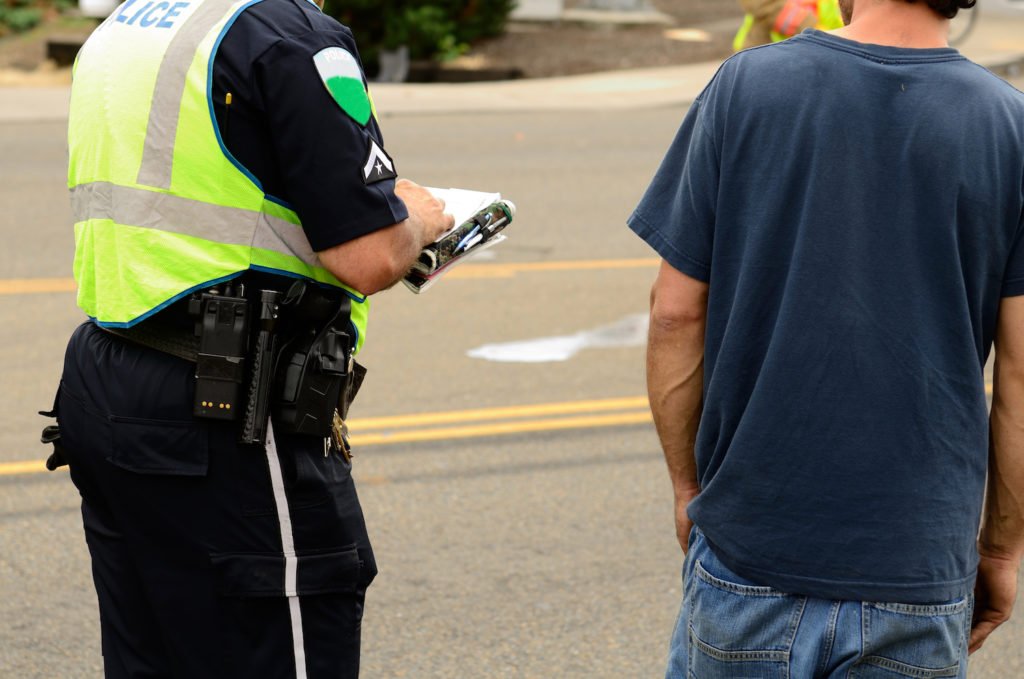In Nevada, disorderly conduct is a catch-all offense that comprises excessively loud or disruptive behavior or fighting in public. The charge is a misdemeanor punishable by up to $1,000 in fines and/or up to six months in jail. But courts are often willing to dismiss the case in exchange for a fine.
Clark County Code 12.33.010 states that:
It is unlawful for any person to engage in any of the following acts of disorderly conduct:
(a) Participate in a fight;
(b) Challenge another person to fight;
(c) Commit a breach of the peace;
(d) Incite a disturbance;
(e) Interfere with, annoy, accost or harass any other person which conduct by its nature would tend to incite a disturbance.
In this article, our Las Vegas criminal defense attorneys discuss:
- 1. What is disorderly conduct in Clark County?
- 2. What are the penalties under CCC 12.33.010?
- 3. Can my assault or battery charge be reduced to disorderly conduct?
- 4. How can I fight the charges?
- 5. Is the crime deportable?
- 6. Can the criminal record be sealed?

Police often issue citations for disorderly conduct rather than conducting arrests.
1. What is disorderly conduct in Clark County?
Disorderly conduct is a broad county-wide criminal offense that comprises any kind of noisy or unruly offensive conduct. Specifically, the Clark County Code prohibits:
- Participating in a fight, such as a duel, fistfight, or rumble;
- Challenging other people to fight;
- Committing a breach of peace;
- Inciting a disturbance; and/or
- Interfering with, annoying, accosting or harassing any other person in a way that would cause a disturbance.
Therefore, disorderly conduct is a vague, “catch-all” offense that involves disturbing the quiet of any neighborhood or public place. Note that public intoxication (NRS 258.260) alone is not a crime in Nevada.
Law enforcement can either arrest or issue citations to disorderly conduct suspects.1 These cases typically occur at casinos, bars, the Vegas Strip, and at protests or rallies.
Not that disorderly conduct is a Clark County crime. It is similar to the Nevada state law crime of breaching the peace (NRS 203.010). Clark County is comprised of the following cities and towns:
- Las Vegas
- Henderson
- North Las Vegas
- Boulder City
- Mesquite
- Laughlin
- Bunkerville
- Moapa
- Moapa Valley
- Goodsprings
- Searchlight
- Jean
- Overton
Every Nevada county has an ordinance similar to Clark County’s disorderly conduct law.2
2. What are the penalties under CCC 12.33.010?
Disorderly conduct is a misdemeanor in Clark County, Nevada, carrying:
- Up to six (6) months of jail time, and/or
- Up to $1,000 in fines3
It is rare for courts to impose any jail unless the defendant is a repeat offender or misses any court appearances. In many cases, courts even agree to dismiss the entire charge once the defendant pays a fine and/or performs community service.
3. Can my assault or battery charge be reduced to disorderly conduct?
Possibly. In some cases, prosecutors may be willing to lessen a misdemeanor battery (NRS 200.481) or assault (NRS 200.471) charge down to a disorderly conduct charge as part of a plea bargain. This is advantageous for two reasons:
- Disorderly conduct has less of a stigma than assault or battery because it does not sound as violent. Potential employers and landlords are less likely to pass over people with a disorderly conduct conviction than if they had an assault or battery conviction.
- A disorderly conduct conviction can be sealed from the defendant’s record only one year after the case ends. Misdemeanor assault and battery convictions have a two-year wait time for sealing records.4

Some CCC 12.33.010 charges may be fought on First Amendment grounds.
4. How can I fight the charges?
Common defenses to disorderly conduct criminal charges include:
- Nothing the defendant did rose to the level of breaching the peace;
- The defendant was falsely accused by someone else;
- Police officers misidentified the defendant as the real culprit; or
- The defendant’s actions were protected by the First Amendment.
Typical evidence in these cases includes surveillance video of the alleged incident and eyewitness accounts.
5. Is the crime deportable?
No. Disorderly conduct is not a crime involving moral turpitude.5 Therefore, non-citizens convicted of it should not face deportation. (Note that undocumented aliens risk being deported at any time, whether or not they are suspected of committing a crime.)
6. Can the criminal record be sealed?
Yes. Defendants convicted of disorderly conduct must wait one year after the case closes to petition for a record seal. But if the case gets dismissed, then the defendant can ask for a record seal immediately.6 Learn more about sealing criminal records in Nevada law.

Call our law firm for help if you have been charged. Our Nevada criminal defense lawyers offer consultations and legal advice.
Also see our articles on jaywalking (NRS 484B.287) and Legal remedies when neighbors play their music too loud.
Cited in California? See our article on Penal Code 415 PC.
Cited in Colorado? See our article on Colorado disorderly conduct laws.
Legal References
- Clark County Code 12.33.010.
- See, for example, Scott v. First Judicial Dist. Court of Nev. (2015) 131 Nev. 1015, 363 P.3d 1159; Reno v. Second Judicial Dist. Court (1967) 83 Nev. 20, 427 P.2d 4.
- Clark County Code 1.08.020.
- NRS 179.245; NRS 179.255.
- 8 U.S.C. 1227.
- NRS 179.245; NRS 179.255.

